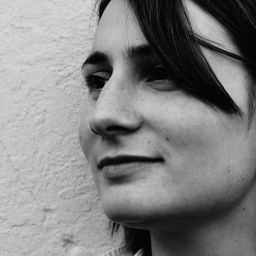Empathy and Indifference – Emotional/Affective Routes To and Away from Compassion II
My Session Status
There is an increasing interest in how emotion is a form of judgement on things that affect our lives, identity and wellbeing. This session focuses on the issue of empathy, the emotional and imaginative skill to place oneself in the subjective position of another. Significant debate has occurred within the wider social sciences that has dismissed empathy as simply a feel-good way of belittling or dismissing social justice issues and thus maintain an individual and societal indifference to the marginalized. Conversely, others have argued that empathy is key to overturning indifference and effecting political and social changes. Overall, this session asks what role(s) can and does heritage, in its various forms, play in engendering empathy, and what might an examination of the ways in which heritage and empathy interact reveal about the utility or otherwise about forms and experiences of empathy? Equally, what may the study of the emotional content of heritage practices and performances tell us about the maintenance of indifference?
This session calls for papers, that explicitly address not just the emotional content of heritage practices, but clearly explore the ways in which heritage is used in a range of contexts to elicit or withhold empathy, and the consequences this has for social debates and individual and collective well-being.
Papers may explore such things as:
● the idea of empathy and its role in the expression of different forms of heritage;
● the way empathy, or its withholding, can be used to either facilitate or closedown the extension of social recognition in heritage and museum contexts;
● how forms of commemoration can re-assert or challenge dominant historical or heritage narratives;
● how people using heritage sites or museums, or debating issues of historical importance, mobilize particular suites of emotional and affective responses to the past;
● how communities or other groups who propose non-authorized versions of heritage/history utilize emotional and affective responses to challenge received narratives about the past;
● research which critically investigates the empathetic responses of "visitors" to heritage sites, museums and other forms of heritage;
● research which investigates the role of empathy in the expression and transference of intangible heritage.
Sub Sessions
“Is it a problem . . . that the Irish is always up for the crack?” asked Ali G of Sinn Fèin MLA Sue Ramsey, a mere year after the signing of the 1998 Good Friday Agreement. Characteristically irreverent in delivery, Sacha Baron-Cohen’s question of whether the “craic” is indeed a “problem” for community relations in Northern Ireland goes to the heart of this paper’s central concern, as it asks: What does role humour play in the development, or inhibition of empathy during Belfast’s Black Ca...
Significant debate has occurred in disciplines outside of a heritage framework in relation to the ability of empathy to act as a catalyst for pro-social change. While some have argued in favour of empathy’s positively oriented transformative abilities, others have dismissed it as a “feel good emotion” that clouds and interferes with processes of cognition. This paper contributes to this debate by discussing ongoing research at “The Mind” exhibition hosted by The Melbourne Museum in Austral...
Biographical narratives are being used as vehicles for history within contemporary heritage discourse. I am interested in unravelling the dialogues in this representation, particularly in the presentation of a historical person in a museum context. In this environment, they are often presented as archetypes that symbolize a larger story, be it social or political. This paper will focus on historical biographies at a particular heritage site; the Foundling Museum in London. The mu...
Employing examples from maritime heritage attractions in Sweden this paper aims to analyze how heritage stakeholders situate their enterprises through unreflective references to childhood. A pioneer in the business of shipwreck tours started a heritage project by trying to convince investors and to create general interest in the planned tours by thoroughly referring to the thrilling documentary films about the Titanic by James Cameron. In contrast to the logistically complex and n...
In this paper I will address ACHS Conference questions surrounding the building of “critical innovations” in heritage and how heritage offers us an understanding of present trends, issues, and discourses. I will use oral history interviews from my PhD research to demonstrate how a methodology employing emotions history is contributing to my understanding of immediate experiences of heritage in the interview. Past emotions play out in the performance of interviews, while present emotions co...
This presentation will explore how I learned about my heritage through multi-sensory learning (MSL). Working with my grandmother’s story of survival during the Holocaust, I am investigating MSL as an interactive approach to teaching, creating, and learning by way of my family history. This presentation will focus on my story of visiting key sites in Poland, which added new dimensions to my understanding of my grandmother’s story through MSL. I explore substantial connections between the ex...
In the small Peruvian, Quechua-speaking town of Chinchero, some thirty kilometres northwest of the tourist hub of Cuzco, processes of heritagization of the Pre-Hispanic legacy encouraged by the state and its representatives, and supported by the narratives of a tourist industry interested in fostering the illusion of an unbroken continuity between the Inca past and the contemporary residents, have been trying to create among the population an obligation of historical and emotional identifi...





